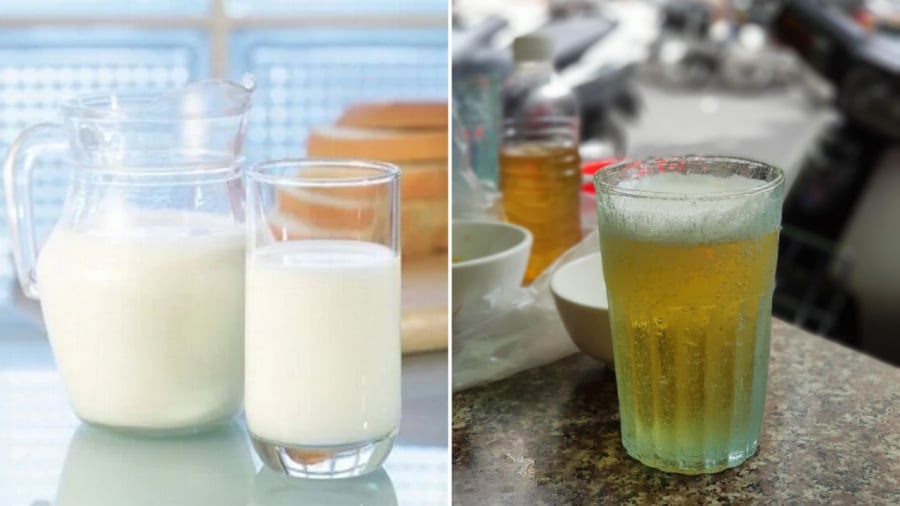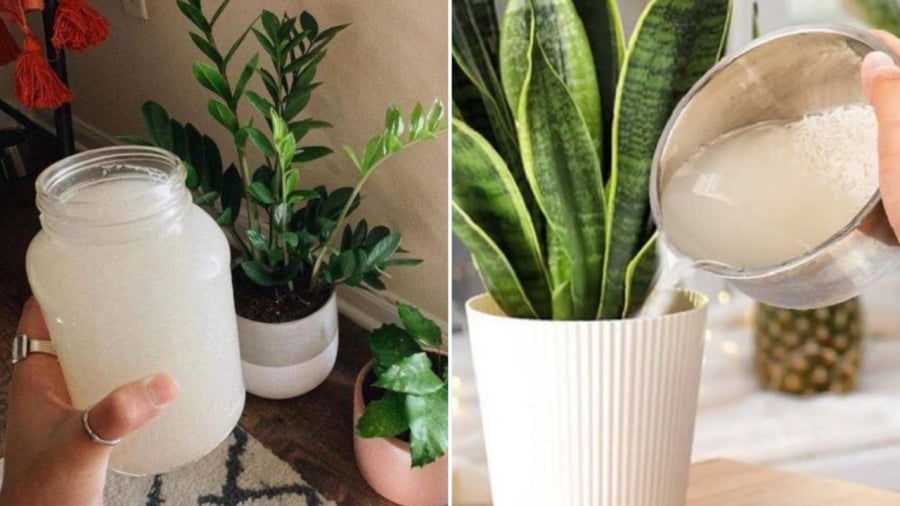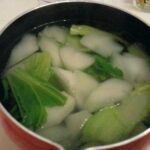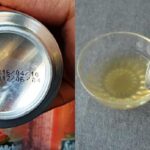Expired Milk and Yogurt
Milk is a great source of calcium and other nutrients that can benefit plant growth. Instead of discarding expired milk or yogurt, consider using them as fertilizer for your plants.
Mix expired milk with clean water in a 1:1 ratio and pour it around the base of your plants. Alternatively, you can spray this mixture onto the leaves of plants like chili peppers, tomatoes, and loofah to promote their growth.
For yogurt, follow a similar process by diluting it with water and pouring it around the base of your plants.
Note: This method should only be applied once a month as excessive use of milk and yogurt can promote bacterial growth, which may be detrimental to the environment. Moreover, the fermentation process of the fat in milk can produce an unpleasant odor.

Expired milk, yogurt, and beer can all be utilized as effective plant water.
Beer
Leftover or expired beer can be diluted and used as a plant tonic. Either pour it around the base of your plants or use a spray bottle to apply it directly to the leaves. Beer contains protein and other nutrients, and the CO2 it produces can act as a natural pesticide, helping to eliminate harmful insects.
Rice Water
Rice water is an excellent natural fertilizer for your plants. It is rich in starch, which promotes the growth of beneficial microorganisms in the soil, nourishing your plants and preventing wilting and root rot.

Rice water – a natural tonic for your plants.
Before using rice water, let it ferment and then dilute it with clean water. Pour this nutrient-rich water around the base of your plants to give them a boost.
Used Tea Leaves
Green tea leaves contain tannic acid, which can help increase the acidity of the soil slightly. Additionally, decomposed tea leaves release nutrients into the soil, promoting the growth of your plants.
Dilute used tea leaves with clean water and use this mixture to water your plants. Doing this 2-3 times a week is usually sufficient.
Egg and Vegetable Boiling Water
After cooking, don’t discard the water used for boiling eggs or vegetables. Instead, use it to water your plants.
Egg shells are rich in calcium carbonate, and some of this dissolves into the water during boiling. This calcium-rich water can be used to provide your plants with an extra boost of this essential nutrient. Just make sure to let the water cool down before using it.
Similarly, the water used for boiling vegetables can be utilized for the same purpose. It contains various nutrients that can promote the growth and health of your plants. Again, allow the water to cool before using it.
However, if you add a significant amount of salt while boiling eggs or vegetables, refrain from using that water for your plants, as salt can negatively impact their growth.
The Magical Elixir for Your Roses: Unlocking Thriving Growth, Abundant Buds, and Blossoms as Big as Bowls
When it comes to watering your roses, you can do more than just using plain water. Imagine a secret weapon that takes your rose garden to the next level. We’re talking about a special type of water that goes beyond the basics, infusing your roses with an extra boost of nutrients. It’s time to unlock the potential of your blooms and watch them flourish like never before.
The Magic Elixir for a Blooming Paradise: Unveiling the Secret to a Flourishing Trumpet Vine
Bougainvillea is a drought-tolerant plant, and once it’s established, you can cut back on watering. When the plant is in full growth and blooming, water it 3-4 times a week during cooler parts of the day, like early morning or late afternoon. This will ensure its vibrant growth without overwatering.
The Magic of Water: 4 Types of Water to Transform Your Garden
Introducing a simple yet effective way to reduce food waste and give your plants a nourishing treat! Don’t let those leftovers, unfinished drinks, or expired items go to waste. Instead, put them to good use by feeding your plants. It’s an easy and eco-friendly way to give your greenery a boost and cut down on kitchen scraps. So, the next time you have some excess food or drinks, remember your plants will thank you for it!





































